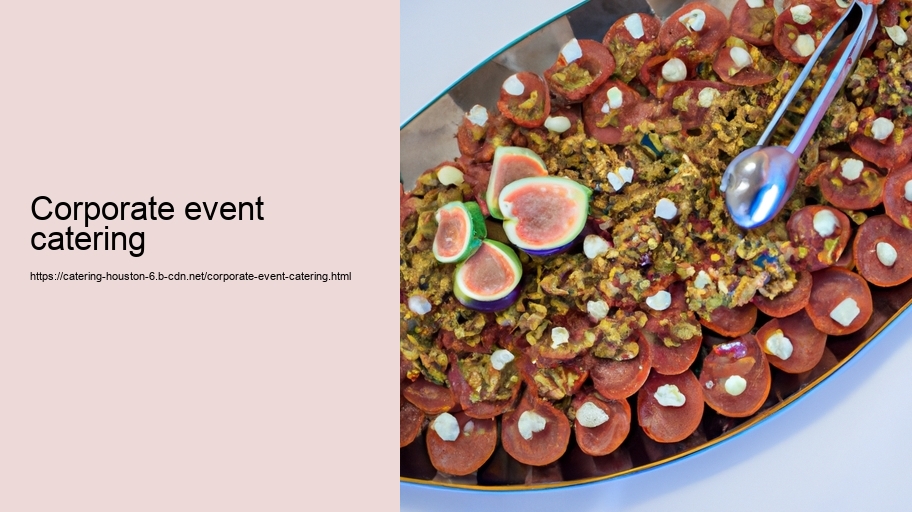Corporate event catering is an essential component of the business world, providing sustenance and ambiance for various gatherings ranging from small meetings to grand corporate celebrations. The importance of catering goes beyond merely serving food; it plays a crucial role in enhancing the overall experience of attendees, reflecting the company's image and values, and contributing to the success of the event.
When organizing a corporate event, planners must consider several pivotal factors that impact catering decisions: the type of event, guest demographic, dietary restrictions, budget constraints, and desired atmosphere. Each element requires careful deliberation to ensure that the service provided aligns with both the goals of the gathering and the expectations of its participants.
The spectrum of corporate events is vast and varied — from intimate boardroom lunches that facilitate focused discussions to large-scale conferences drawing hundreds or even thousands of guests from across industries. At one end, a simple but elegant menu might suffice where convenience and efficiency are paramount; at another end stands a lavish banquet where each course is curated to impress clients or celebrate significant milestones.
A trend gaining momentum in corporate event catering is customization. Today's workforce encompasses an array diversity not only in cultural backgrounds but also in dietary preferences and needs. Veganism, vegetarianism, gluten-free diets, halal requirements — all demand attention if every attendee is to feel accommodated. A caterer adept at crafting diverse menus can therefore be invaluable when aiming for inclusiveness.
Budgeting for catering must be approached with strategic thoughtfulness. While it's tempting to cut costs by selecting less expensive options or providers, doing so may inadvertently tarnish the perceived value or professionalism of an event. Conversely, extravagance isn't always necessary nor appreciated; striking a balance between quality and cost-effectiveness often yields better results than extremes on either side.
An often underestimated aspect of corporate event catering is its capacity to foster networking opportunities. Meals act as social lubricants; breaks during long sessions provide chances for interaction among colleagues who might otherwise not engage with one another. Thusly facilitated relationships can lead to fruitful collaborations outside the confines of formal meeting agendas.
Caterers specializing in corporate affairs understand their dual role as culinary experts and discreet facilitators of professional exchanges. From meticulously planned layouts that encourage flow between buffet stations or tables to servers trained in unobtrusive etiquette — every detail contributes towards creating an environment conducive for business dialogue alongside dining pleasure.
Sustainability has emerged as another vital consideration within this realm. Companies conscious about their environmental footprint seek caterers who prioritize locally sourced ingredients, minimize waste through intelligent portioning or reuse strategies (like compostable serviceware), and demonstrate eco-friendly practices throughout their operations.
In conclusion, effective corporate event catering demands much more than just delivering food; it requires a holistic approach considering guest satisfaction through delicious offerings while being mindful about health concerns, budgetary limits without sacrificing quality or reputation management aspects like sustainability goals which are increasingly relevant today’s socially aware marketplace conditions—thereby ensuring memorable events leave lasting positive impressions on all involved parties alike.
